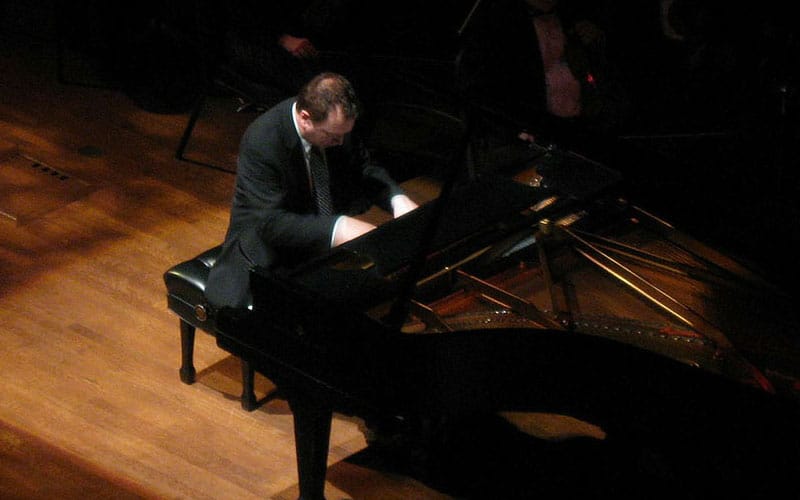Back in the day, winning an international or even a national competition was a sure ticket for an artist’s road to stardom. Stardom meant more quality concerts, more acquaintances, more music, and more… everything.
Competition winners were celebrated the world over, and their music was played on most classical-music-affiliated radios all over the place. Who doesn’t recall Van Cliburn’s ticker-tape parade when he won the ‘Tchaikovsky’, an instance that nowadays feels a thing of romanticism and nostalgia?
On the other hand, who remembers who won the last two major international opera competitions? I’m sure a few of the hard-core music lovers and musicians will, but I have some reservations when it comes to the majority of musicians. Do you remember?
So why people are not focusing that much on competitions anymore? Is it because there are no talented musicians like in the past? Is it because there is no need for competitions? Well, if anything, there is more talent around, in my opinion; perhaps there is too much talent waiting to be discovered.
Why Classical Music Competitions Lost Their Appeal
Here are some reasons classical music competitions have lost a bit of their glare:
1. There are far too many excellent musicians around nowadays, so the competitions started to become irrelevant; there is no real need to thoroughly search for “talent” anymore; talent is overflowing from everywhere, and talented people have many different, interesting and niche qualities to show, apart from the good-old performing.
2. People are looking for more image-oriented artists, and they are losing interest in the “stuffy” and “know-it-all-faced” classical musicians. Unfortunately or fortunately, popular media have shaped people’s taste in wanting more fresh and brilliant artistic profiles, away from the past’s introversion. (see televised popular song competitions, for instance).
3. Competition winners are not always artistically fine enough to win audiences; yes, believe it or not, there is an increase in people’s dislike of the actual result a top winner of a competition produces -e.g. technical one-. This comes also from the fact that people are having more choice and therefore are becoming more and more demanding in their musical expectations.
4. Competitions through their judges and archaic traditions, created preferential and specific profiles of what is a good musician, forgetting that an audience is the ultimate judge; so, just because you taught your student how you personally think music should be performed, it doesn’t make other musicians’ musical approaches inapt. (See Pogorelich). So, music competitions have stayed behind in the musical zeitgeist.
5. With the rise of television and the choice of more live options and excellent recordings, there are far more intriguing events nowadays for grasping an audience’s interest than winning a classical music competition.
6. The winning prizes themselves are insufficient to lure or help the artist on the way to stardom; well, no more parades or extended TV coverages and interviews, amongst others.
7. Personality and looks goes a long way, and not necessarily the true mastery of an instrument or voice.
8. People slowly realised that you are not necessarily a skilled musician if you have won a competition than when you haven’t won one; tout au contraire, you might be a musician of poorer quality. See, Arcadi Volodos, or Evgeny Kissin, for example; they both didn’t bother with “stiff-lipped” competitions.
9. An audience’s ultimate request is to really have fun when someone is winning a competition, and nowadays audiences are not getting thrilled anymore by some grumpy chaps playing frantically.
So, What Then?
So then, will it be better if you stayed at home doing nothing, drinking cups of teas while watching the Leeds International?
Well, I think competing in general is great. Musical-competing is not my favourite type of competition, of course, but nowadays is still a valid way to promote yourself.
So, as much as I tremble at the very thought of “musical-fights”, here’s why music competitions and music-competing may be helpful in your career:
1. You get to vainly say to someone, “Look, I am a better musician than you, because this piece of paper says so.”
2. There is no need to constantly trying to prove that you’re talented; That’s unfortunate in my opinion, because, again, you have a piece of paper to show that you are good, so you don’t have to musically prove yourself all the time; sitting on your laurels and complacency can lead to other problems, of course, but that’s another story.
3. The vast majority of employers and music agencies do not have time to evaluate musicians through their pragmatic musical talent; they are resorting to pieces of papers, such as resumes, CV’s, letters of recommendations, and the rest of “noise” to determine your suitability as a musician, forgetting that your actual performance and your personality is what really matters.
… and the vanity continues relentlessly.
So, again, I must resort to saying, go with the flow, and hope for the best.
———————————————————————————————————
© Nikolaos Kokkinis – 9/July/2013



Amazing!